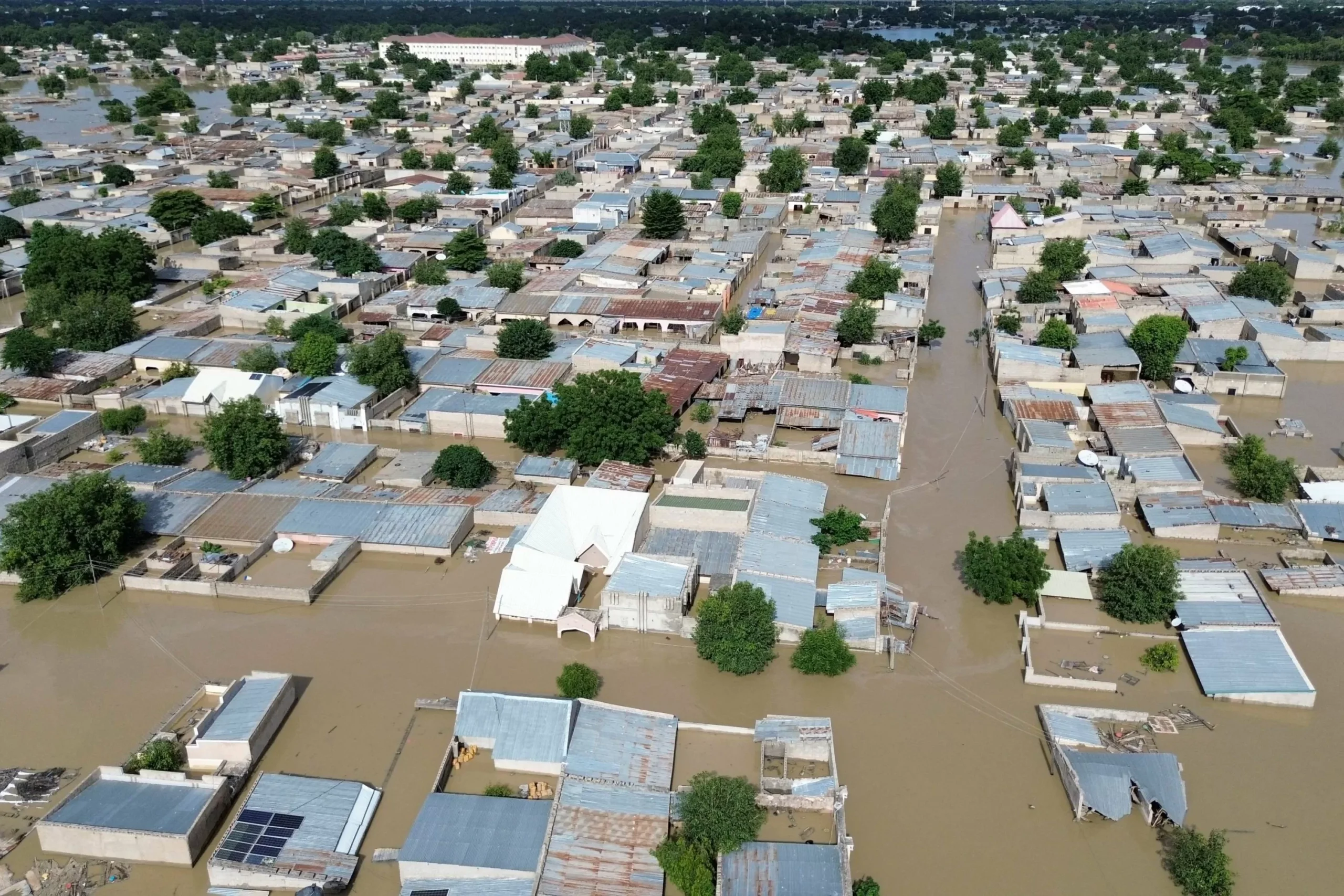At least 30 people have tragically lost their lives and a million others have been affected by severe flooding in Nigeria’s northeastern region, according to emergency services reports on Wednesday.
The National Emergency Management Agency (NEMA) has confirmed the death toll of 30, while also revealing that over a million people have been displaced and are in need of urgent assistance. The heavy flooding has caused widespread damage to homes, properties, and infrastructure, leaving countless families devastated and struggling to survive.
The affected areas include the states of Adamawa, Borno, and Yobe, where heavy rains and overflowing rivers have caused the worst flooding in decades. The situation has been made worse by the recent release of water from the Lagdo Dam in neighboring Cameroon, which has added to the already severe flooding.
In response to the crisis, NEMA has activated emergency response teams and set up camps to cater to the displaced families. They are also working in collaboration with the state governments, NGOs, and other partners to provide food, shelter, and medical assistance to those affected. President Muhammadu Buhari has also directed the agency to provide all necessary support and relief materials to the affected communities.
The impact of the flooding has been devastating, with homes destroyed and farmland submerged, leaving many without a source of livelihood. This has also increased the risk of waterborne diseases and other health hazards. The elderly, children, and women are particularly vulnerable in these circumstances, and urgent measures are needed to ensure their safety and well-being.
The situation in northeastern Nigeria has been dire for several years due to ongoing conflict and displacement. The recent flooding has only added to the already challenging living conditions for the people in this region. It is heartbreaking to see the suffering and loss of life caused by this natural disaster, especially for a community that has already endured so much.
However, in the midst of this tragedy, there are also stories of hope and resilience. Communities have come together to help each other and support those in need. Local volunteers have been providing assistance and helping to evacuate people to safety. The Nigerian Red Cross Society has also mobilized its volunteers to assist in search and rescue efforts.
Such acts of kindness and compassion in the face of adversity are a testament to the strength and unity of the Nigerian people. It is heartening to see that even in the most challenging of times, the spirit of humanity prevails.
The government and other stakeholders must continue to work together to provide immediate relief and support to the affected communities. Long-term measures must also be put in place to prevent future flooding and mitigate its impact. This includes investing in flood management systems, upgrading infrastructure, and promoting sustainable land use practices.
As a country, we must also come together to raise awareness about the effects of climate change and the importance of protecting our environment. With the frequency and severity of natural disasters on the rise, it is crucial for us to take action and be proactive in safeguarding our communities and our future generations.
In conclusion, the recent flooding in northeastern Nigeria has brought about immense loss and devastation. But it has also shown the resilience and humanity of the Nigerian people. Our thoughts and prayers go out to all those affected by this disaster. Let us continue to support and uplift each other in this time of need, and work towards building a more resilient nation.






![Complete BritRail Pass Guide [Types, How to Use It, Pros + Cons]](https://inside-news.uk/wp-content/uploads/2025/06/00221EB4-BCA2-4DBB-6CD4-83DBC37D71FA-120x86.webp)















